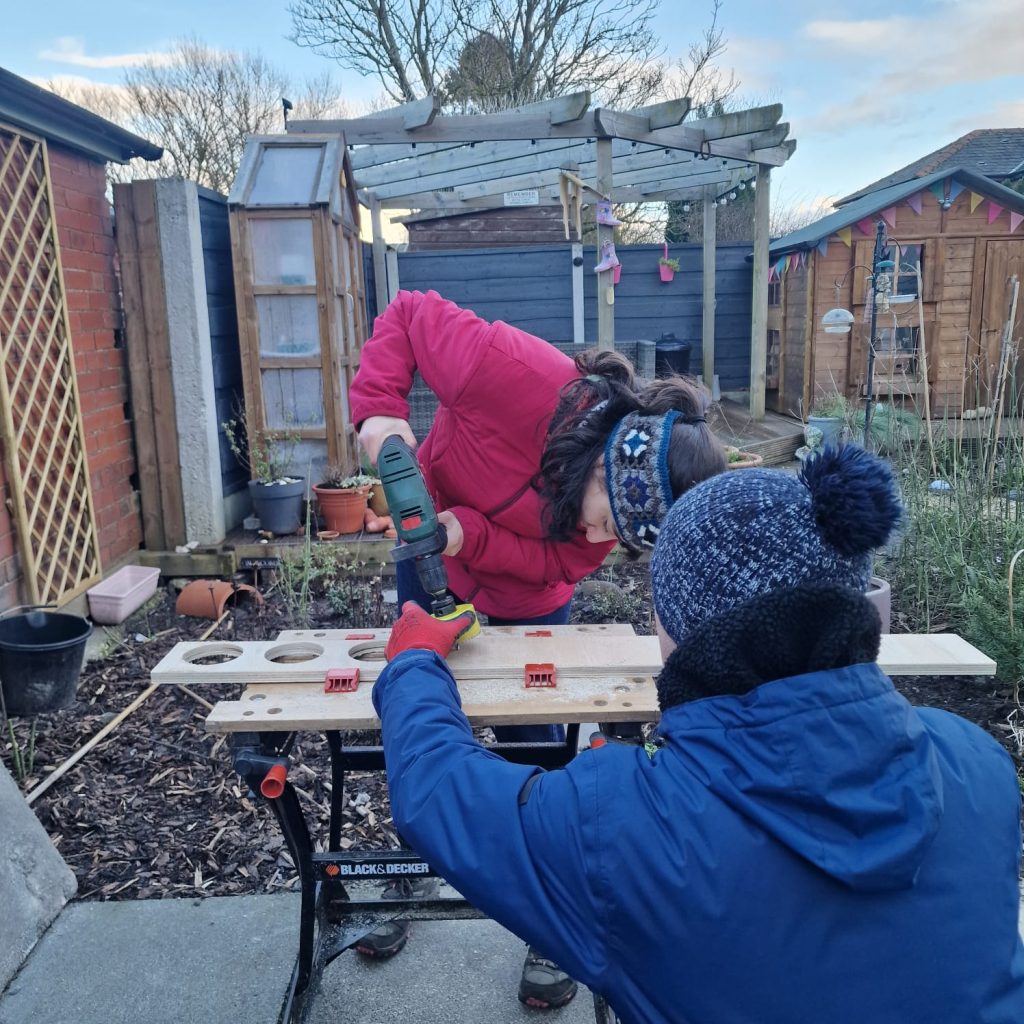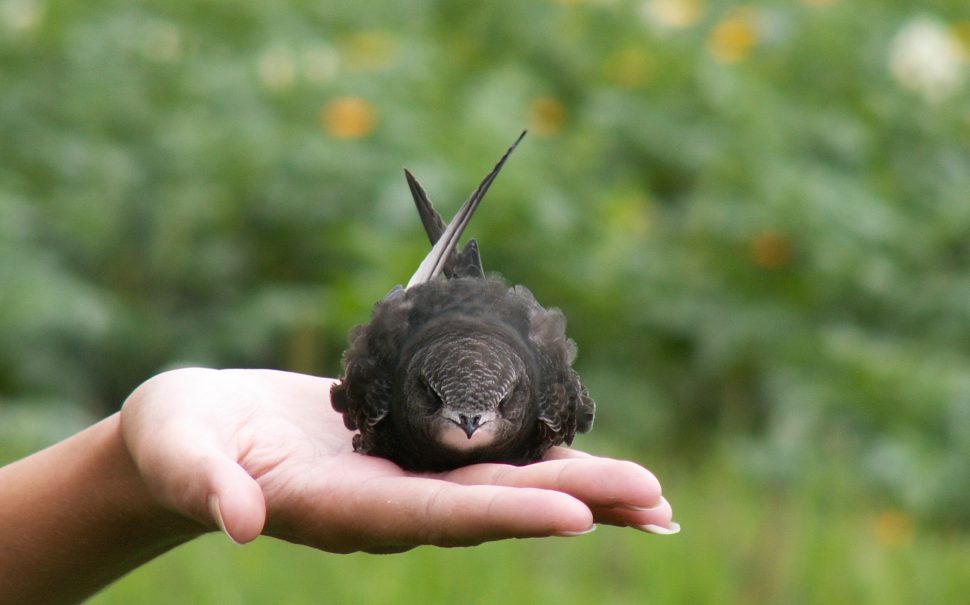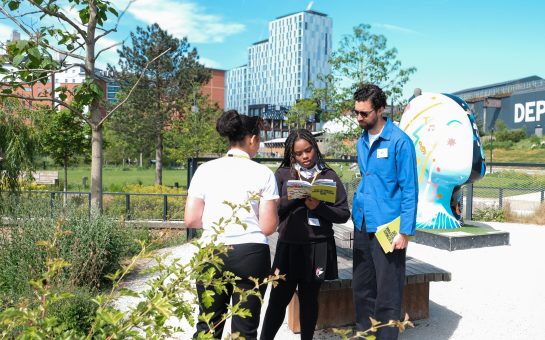She’s enjoyed a long summer in the warmth of the sub-Saharan African sun. But as the northern hemisphere begins to unthaw, this high flyer will embark on an epic journey, covering up to 25 countries across two continents and at least 3,000 miles back to her home to start a family.
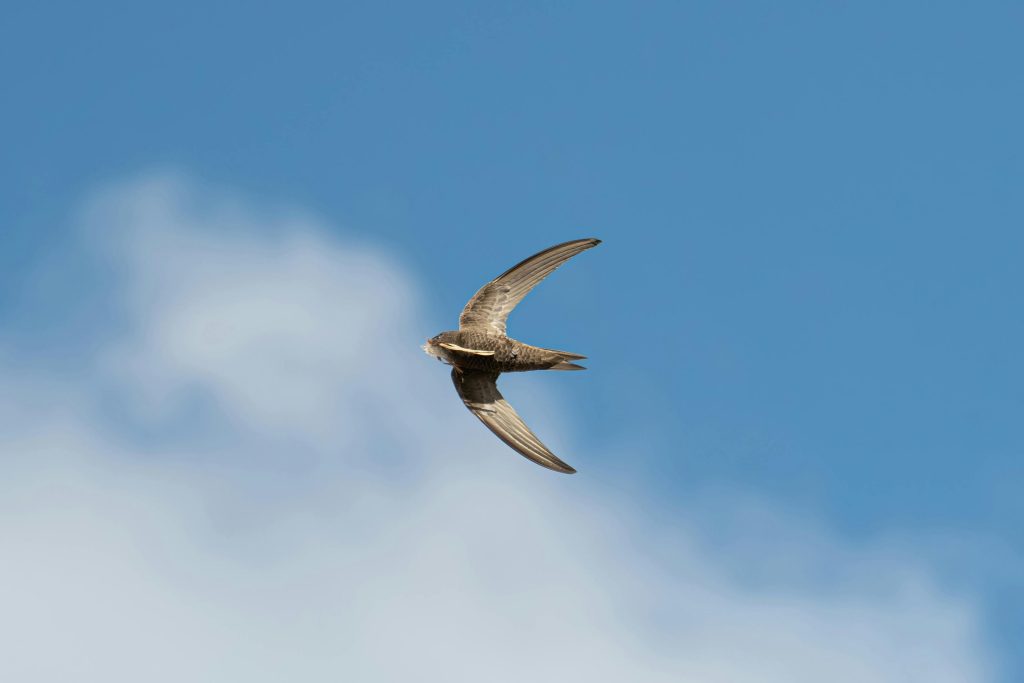
Swifts are special, and they never stop flying. Surprisingly, I’m not talking about mega pop star and international jet-setter Taylor Swift, but the common migratory bird. Across four weeks this little traveller will soar at record speeds of up to 70mph, and barely touch down, eating, washing, and even sleeping on the wing, and travelling around 350 miles a day, until she reaches her destination – the UK.
Here, she will return to her home she nested in the previous year with her life partner, where they will breed, before swiftly heading back down to Africa to escape our winter months. In her lifetime she will fly up to 2,000,000 miles, four trips to the moon and back! That Blue Origin space flight has nothing on Swifts.
But their population, like many species, is in a steep and scary decline. In the UK, swift numbers have plummeted by 65% in just 25 years, currently estimated at under 60,000 breeding pairs. They are now on the Red list of conservation concern – there’s only red, amber and green and you can guess which is the worst.
Enter, Swift Awareness Week. Beginning back in 2018, the week, which we’re currently in the middle of, brings communities across the UK together to support the species but also raise awareness of its plight. The support for the common swift is far-reaching, with many cities aiming for ‘Swift City’ status. Sheffield, a Swift City since 2023, has networks by postcode, communities are that invested.
Here, in Greater Manchester it is no different. In May, one of the largest Swift Streets in the UK was launched in Swinton, Salford. A collaborative effort between the RSPB and local passionate communities and college and social enterprise, Growth Company.
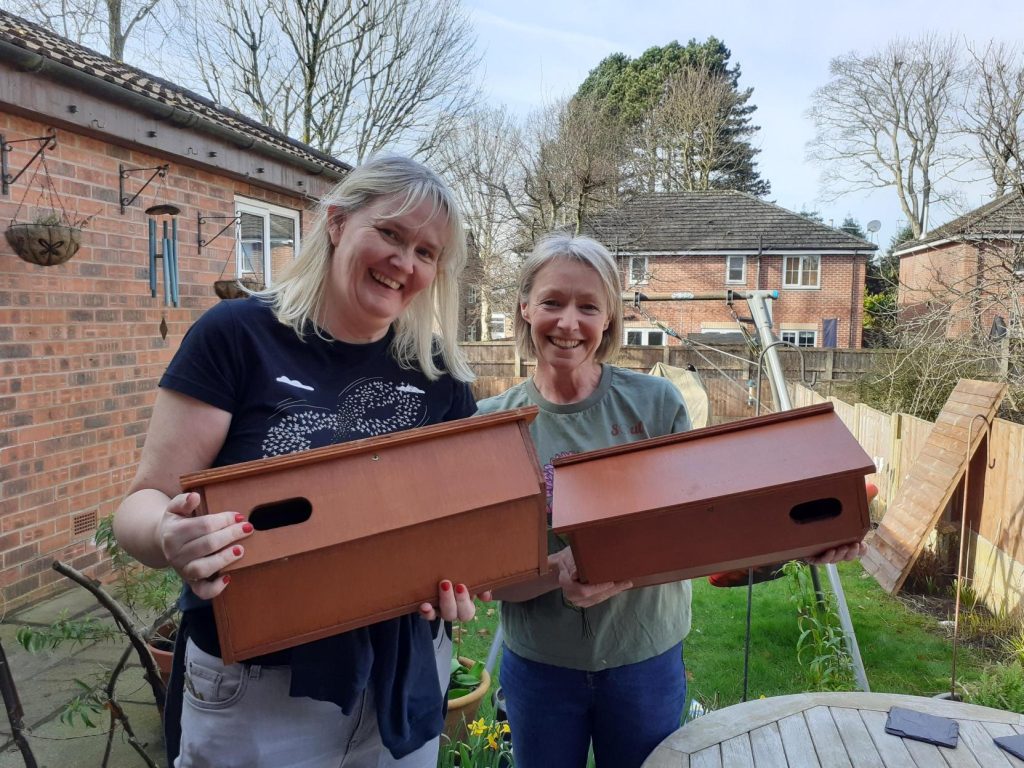
Haldis, resident of and volunteer behind the Swift Street jumped on the opportunity to bring more awareness to the bird: “When I found out with this project, I volunteered because anything that helps the Swifts says, I’m up for it.
“I’ve been here for 10 years and I’ve seen the numbers drop.”
With the help of RSPB Great Manchester’s Community Engagement Officer, Roshni, Haldis was able to get almost the whole street on side to fit Swift boxes on their houses.
Haldis said: “It’s been teamwork and you don’t always see the things going on in the background.
“Everybody who took a swift box and put it up on their house, that’s looking up to the sky for them coming and speaking to their neighbours, they’re forming that network and they supported the project but more importantly they supported the Swifts and I think that’s amazing.”
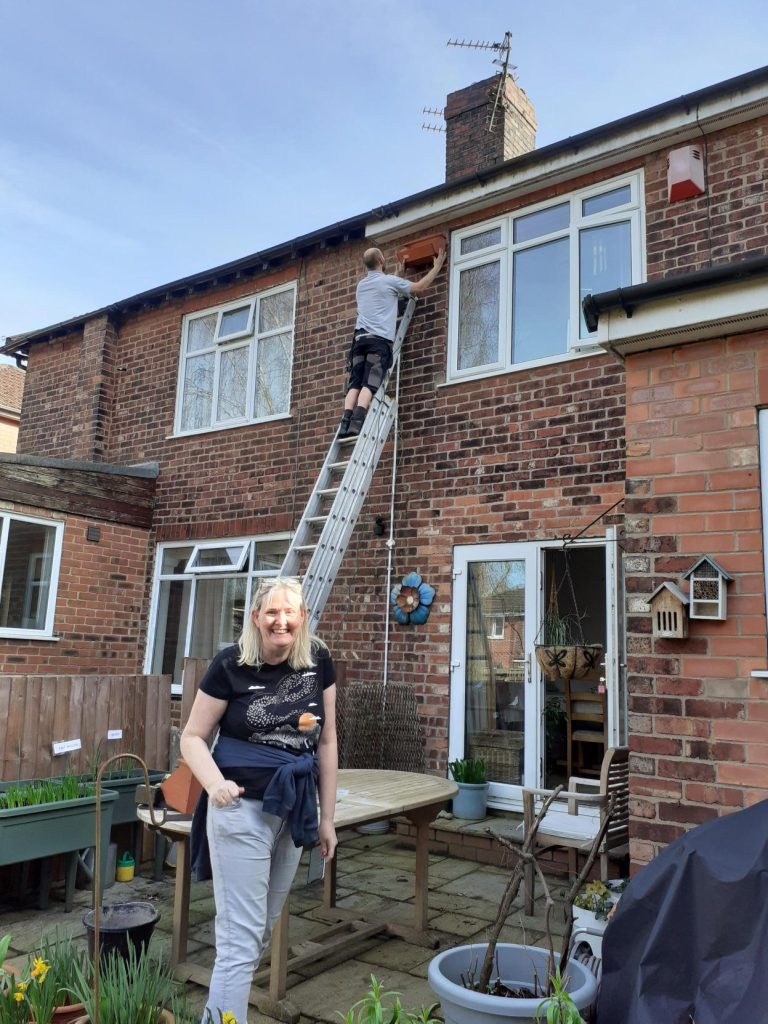
The collaborative effort of building a Swift Street extended further than the residents of Swinton, with the RSPB enlisting social enterprise and skills centre the Growth Company to build over 100 Swift boxes for the residents. Growth is a provider of education, skills, employment, youth and offender rehabilitation support helping all ages from 16 to 60. Partnering with different projects and organisations across the district, they ensure their learners are aware of local issues so they can get involved with community engagement where possible.
Lee, Skills Centre Manager at Growth, spoke to Mancunian Matters about getting involved with the Swift Street: “It gave us a good opportunity for our learners to apply their practical skills, but also become aware of an issue that’s global.”
“It gave us an opportunity to do a bit of education within the centre relating to the plight of the Swifts but also apply their practical trades.
“It prompted a lot of conversation around, ‘Well, why are we doing it? Oh, I didn’t know they existed.’ And it was an education piece as well as a bit of social engagement.”
“A couple of learners have now made their own, and they’ve come back and said ‘oh we’ve noticed some swifts!’
”So it’s good that our learners are engaging with that side of it.
“But more is, it was becoming aware of a global issue in terms of endangered species.
“And that’s then prompted different discussions in the classroom about what they can do in terms of recycling.
“It’s led onto bigger things, which we’re very grateful for.”
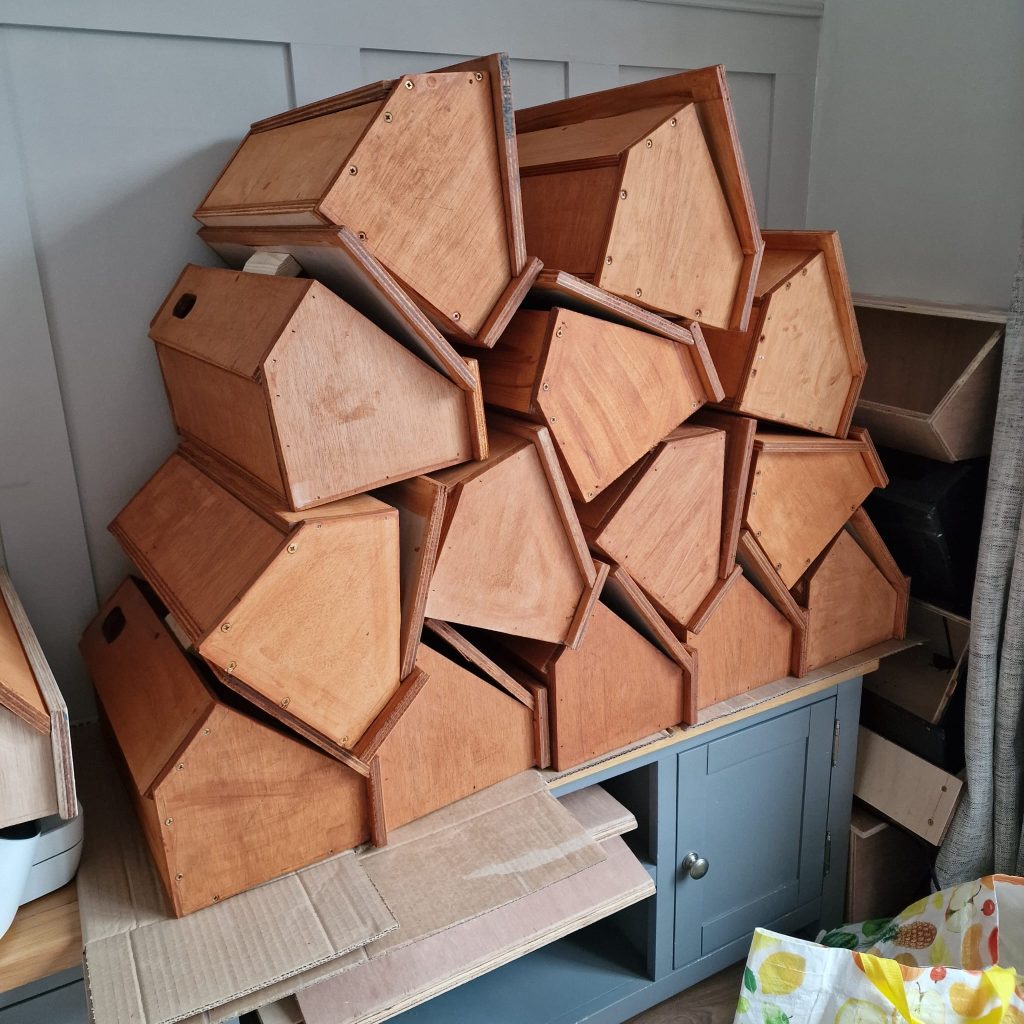
The RSPB is pushing for Greater Manchester to become the next Swift City, and it’s certainly on track. The Swinton Swift Street was launched with the help of Springwatch presenter and RSPB Ambassador Megan McCubbin, which undoubtedly put the spotlight on the community’s efforts. The Festival of Nature was held on Sunday in Heaton Park, with a dedicated Swift hub, and other walks, talks and events continue across this weekend, across the country.
Power in the community feels even more important against the backdrop of domestic politics mirroring Adam McKay’s Don’t Look Up approach to the climate crisis. In May, Labour’s increasingly controversial Planning and Infrastructure Bill, called ‘a licence to kill nature’ by conservationists, rejected an amendment to provide every new home in England with at least one ‘swift brick’.
Despite overall support from house builders, housing minister Matthew Pennycook told the House of Commons committee: “We are not convinced that legislating to mandate the use of specific wildlife features is the right approach, whether that is done through building regulations or a freestanding legal requirement.”
The government has claimed that the Bill will be a ‘win-win’ for opportunities to boost nature and build new houses, roll-out renewables, and drive economic growth. Despite this environmental optimism, they have drawn widespread criticism.
The Office of Environmental Protection (OEP), the Government’s own watchdog, have called it a ‘regression’ of environmental protections. 40 experts who have penned an open letter against it. And over 30 environmental organisations including RSPB, The Wildlife Trusts and the National Trust have expressed deep concern over the Bill’s attack on nature, and called out the government for ‘breaking promises’.
So work on the ground by these organisations has never been more vital to protect the UK’s biodiversity and the work the RSPB are doing on Swifts alone is vast. The Greater Manchester team have set up other Swift streets across Salford, Charlton and Stockport with over 170 boxes installed so far. They also have their Swift City project which sees the organisation work with councils, a Swift champion network, a volunteer network, they’ve set up a Swift mapper app.
They connect these with other bio-diversity challenges, like insect decline, which highlight the sensitivity and interconnectivity of our nature. Roshni said: “On a local level people are really supportive, obviously there’s a bit more work to be done on a political level… there’s some really positive movements in Manchester.
Last year, Bury council became the first authority in Greater Manchester to adopt the policy of installing Swift bricks in all new-builds. It took 8 years of campaigning from Louise Bentley, member of a local bird rescue group Bolton and Bury Swifts, and her peers. It’s now the preferred method by the council over installing bird boxes.
This example shows how key community engagement is for any change on a local or political level, something Haldis thrives on: “Community engagement, it’s talking to people and educating people, speaking to people, doing stuff on Facebook, working with kids.”
Roshni said: “It’s easy to forget that endangered species are in the UK and on our doorstep.
“Swifts are a really good example of when you’re feeling helpless about the climate crisis or helpless about biodiversity loss you can do something by installing boxes or bricks or going out surveying by just downloading an app.
“Whatever that is, you’re making a difference to global biodiversity numbers and an endangered species right here in the UK and right here in Greater Manchester and I think that’s really special.”
